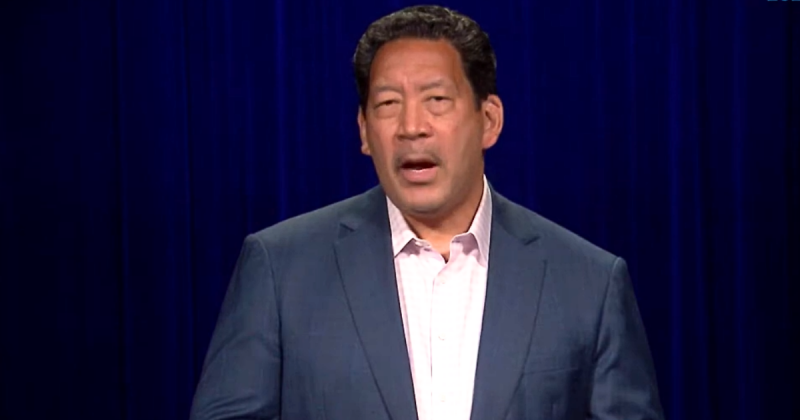Seattle Mayor Bruce Harrell faced sharp criticism after comments he made regarding repeat offenders during a Thursday mayoral debate, raising questions about public safety and his leadership ahead of the November election.
Harrell indicated he prioritizes understanding the “life story” of criminals rather than automatically imposing jail time, even for those with multiple convictions.
The debate, hosted by FOX 13 ahead of Seattle’s mayoral election, featured Harrell against challenger Katie Wilson.
Public safety was a central topic, particularly as FBI statistics showed Seattle ranked fourth among large U.S. cities for overall crime in 2024.
Moderators Emily Parkhurst and Hana Kim asked whether the city had become too lenient on repeat offenders, citing rising concerns about criminal behavior.
“When this person is committing six or seven crimes, I don’t know his or her story,” he said. “Maybe they were abused as a child. Maybe they’re hungry.”
“But my remedy is to find their life story to see how we can help. First, I have no desire to put them in jail, but I need to protect you, and that’s the calibration that we have.”
He added that he reviews cases with police officers and implements what he described as a “health-based strategy” for dealing with repeat offenders.
Harrell’s comments quickly drew reactions online and among commentators. Critics argued his approach favors offenders over victims and public safety.
Stephen Miller, Deputy Chief of Staff for Policy and Homeland Security Advisor, warned, “This is how a society dies.”
Conservative commentator Jesse Kelly labeled the mayor’s remarks “beyond shocking,” asserting that Harrell’s philosophy could encourage repeat criminal behavior.
During the debate, Harrell referenced the city’s fire department initiative to administer buprenorphine to addicts involved in criminal activity.
He described the program as a model for addressing underlying causes of crime rather than relying solely on incarceration.
Critics contend that while these programs may assist certain individuals, they do not address the immediate threat posed by repeat offenders.
Wilson, the challenger, emphasized the need to maintain and expand diversion programs such as Law Enforcement Assisted Diversion (LEAD), which connects low-level offenders with community resources rather than jail.
She highlighted that funding for such programs has been reduced during Harrell’s tenure and called for renewed investment to prevent repeat offenses while improving public safety.
The exchange underscored Seattle’s ongoing struggle with crime and its divided approach to criminal justice.
Advocates for stricter enforcement argue that Harrell’s remarks demonstrate a disconnect between city leadership and residents experiencing the consequences of prolific offenders in their neighborhoods.
As the election approaches, Harrell’s comments are expected to influence voter perceptions of his approach to crime.
Critics caution that his emphasis on empathy for repeat offenders, without strong accountability measures, may alienate constituents seeking tangible results in crime reduction.
The debate highlighted the tension between rehabilitation-focused policies and the demand for immediate enforcement in the city’s high-crime areas.
Seattle voters will be watching how public safety policies shape the mayoral race.
The remarks by Harrell, combined with discussions on diversion programs and the city’s crime statistics, may serve as a defining moment in the campaign.
Observers note that residents and business owners who have been affected by repeat offenders are particularly attentive to the candidates’ proposed strategies.
WATCH:

